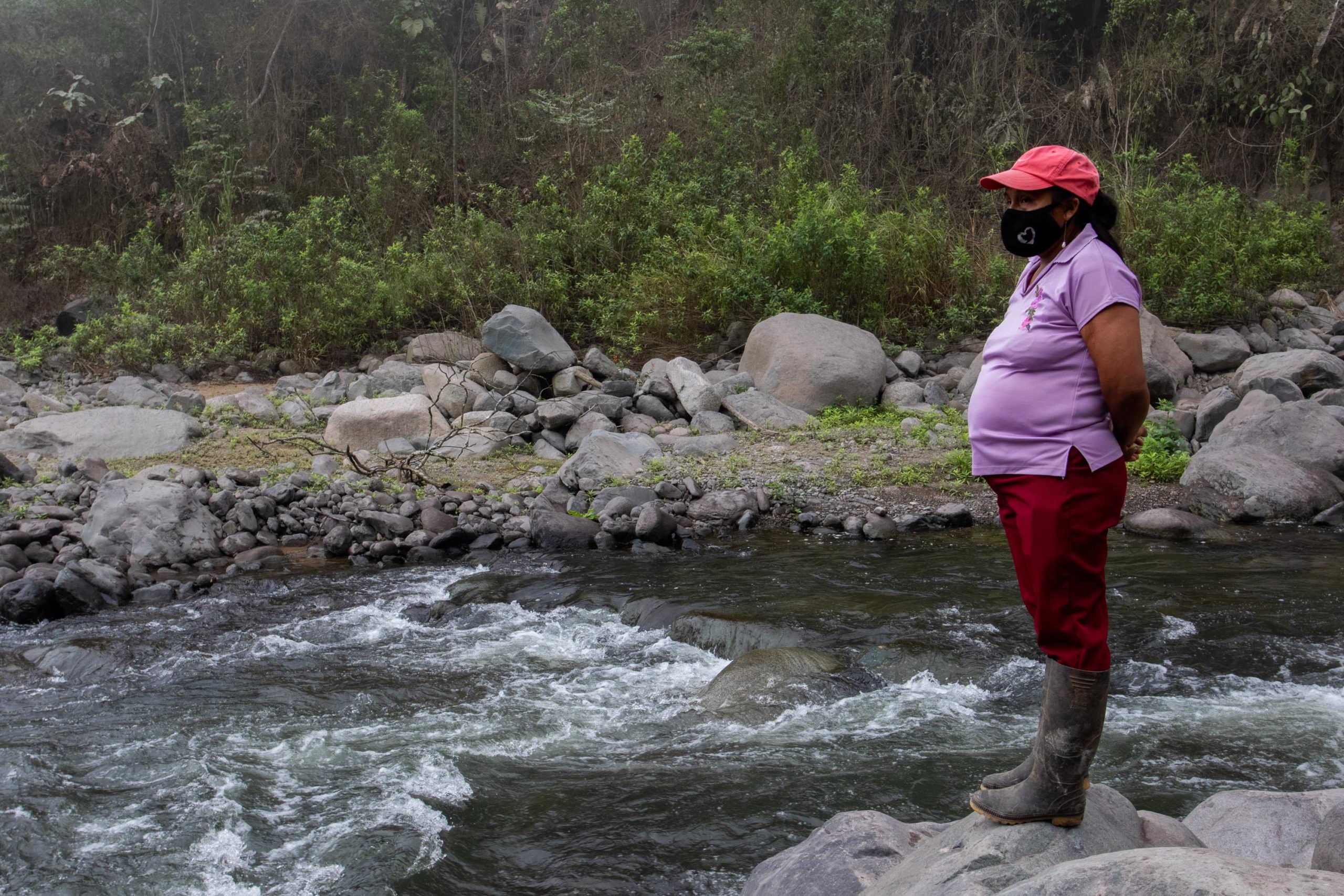Powered by Canadian, Ecuadorian, Spanish and Swiss investors, the São José del Tambo dam (Hidrotambo S.A.) is considered a rudimentary and dangerously built hydro project and has been threatening the lives and livelihoods of over 140 communities along Dulcepamba River. On February 1st, an appeals hearing will be held in the Provincial Court of Tungurahua and try to revert a decision in favour of the hydro company.
For Immediate Release: Jan 31, 2022
Ecuador – A dangerous ticking time bomb routine is being lived by 140 communities along Dulcepamba River, located on the southwestern slopes of the Andes in central Ecuador, since 2004, when the São José del Tambo dam was built. Considered a “rudimentary and dangerous project”, the dam will be the subject of a hearing the next Tuesday (Feb 1,2022) in the Provincial Court of Tungurahua, after communities appealed against a protective action in favour of Hidrotambo S.A that release the company of doing reparations in the affected area.
The dam is part of Hidrotambo S.A., a partnership secured by the Equatorian Corporation for Energy Research (CIE) and Canadian, Ecuadorian, Spanish and Swiss investors. Hidrotambo’s dam was built in 2016 without respecting the communities rights to free, prior and informed consent and diverted the river up to 120 meters closer to San Pablo de Amalí, exposing them to extreme risk of flooding and erosion.
Analyses of the project’s design by the Secretariat of Water (now Ministry of Environment, Water and Ecological Transition, MAATE) have since determined the project to be “rudimentary” and dangerously built. Without a proper reservoir or other adequate control mechanisms for high flows in the river, it directs high flow excesses directly towards the community of San Pablo de Amáli.
This water release threatens the communities: In 2015, the dam flooded the community of San Pablo de Amalí, killing four people and destroying 12 homes as well as parts of more than 20 farms.
Since its construction, lives, homes, farmland and the only access road to town continue to be at risk of flooding and collapse. With the changes of the flowing river, the numbers of fish are diminishing, affecting the food security of the communities. Hidrotambo S.A also has the concession of the river water, which means that in the dry season, the communities are exposed to the lack of water. Finally, a 2020 study by the Regional Amazonian University Ikiam determined that the company failed to leave the required environmental flow in the Dulcepamba River, affecting water quality indicators that support a healthy aquatic ecosystem, on top of the fragmentation of the river created by the physical barrier of the hydro plant. For the past 17 years, the affected communities have been resisting against the hydro project.
Judicial developments
The Secretariat of Water released a landmark ruling in October of 2019, requiring that the hydro company rectify these harms. The water authority determined that the project was irresponsibly built and ordered the redesign and reconstruction of the hydro project within two years in order to protect San Pablo de Amalí from future disasters. The resolution also corrected the water right authorized to the company and ordered that the project cannot operate during the dry season, to allow the upstream farming communities to exercise their right to water.
However, Hidrotambo S.A refused to comply with the terms of resolution. On the 19th of November 2021, desperate to avoid compliance with the resolution that protects the communities, Hidrotambo filed a protective action before a trial-level court in Ambato alleging due process violations.
The trial court ruled in favor of Hidrotambo, deactivating the administrative resolution that had, after years of community activism, finally ordered the correction of the ongoing human rights and nature’s rights violations by the hydroelectric company. The communities and the Ministry of Environment, Water and Ecological Transition have both appealed what they called an unjust, improper and excessive use of the constitutional power.
Tomorrow, February 1, an appealing hearing will be held in the Provincial Court of Tungurahua to discuss the trial court in favor of Hidrotambo S. A. This is what the communities of Dulcepamba River want:
- That the Provincial Court of Tungurahua overturn the protective measure conceded to Hidrotambo. This will mean reinstating the 2019 administrative order in favor of the communities, for Hidrotambo to:
- Redesign and reconstruct the hydro project in order to protect San Pablo de Amalí from future disasters.
- Cease operations during the dry season, to allow the upstream farming communities to exercise their right to water unencumbered by legal oppositions and to allow a sufficient environmental flow for the river between the intake and machine house.
Press contacts:
Cecília Garcia, International Rivers – cgarcia@internationalrivers.org
Acción Ecológica – 099 274 7727
Comisión Ecuménica de Derechos Humanos (Cedhu) – 099 902 9381
Fundación Regional de Asesoría en Derechos Humanos (Inredh) – 099 205 8210
Yasmín Calva, abogada de las comunidades – 098 984 9212

